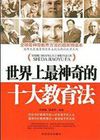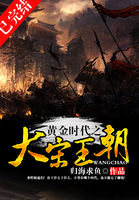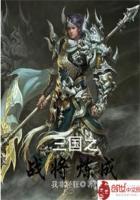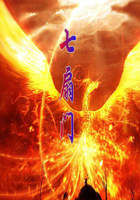THE OGALLALLA VILLAGE
Such a narrative as this is hardly the place for portraying the mental features of the Indians.The same picture, slightly changed in shade and coloring, would serve with very few exceptions for all the tribes that lie north of the Mexican territories.But with this striking similarity in their modes of thought, the tribes of the lake and ocean shores, of the forests and of the plains, differ greatly in their manner of life.Having been domesticated for several weeks among one of the wildest of the wild hordes that roam over the remote prairies, I had extraordinary opportunities of observing them, and Iflatter myself that a faithful picture of the scenes that passed daily before my eyes may not be devoid of interest and value.These men were thorough savages.Neither their manners nor their ideas were in the slightest degree modified by contact with civilization.
They knew nothing of the power and real character of the white men, and their children would scream in terror at the sight of me.Their religion, their superstitions, and their prejudices were the same that had been handed down to them from immemorial time.They fought with the same weapons that their fathers fought with and wore the same rude garments of skins.
Great changes are at hand in that region.With the stream of emigration to Oregon and California, the buffalo will dwindle away, and the large wandering communities who depend on them for support must be broken and scattered.The Indians will soon be corrupted by the example of the whites, abased by whisky, and overawed by military posts; so that within a few years the traveler may pass in tolerable security through their country.Its danger and its charm will have disappeared together.
As soon as Raymond and I discovered the village from the gap in the hills, we were seen in our turn; keen eyes were constantly on the watch.As we rode down upon the plain the side of the village nearest us was darkened with a crowd of naked figures gathering around the lodges.Several men came forward to meet us.I could distinguish among them the green blanket of the Frenchman Reynal.
When we came up the ceremony of shaking hands had to be gone through with in due form, and then all were eager to know what had become of the rest of my party.I satisfied them on this point, and we all moved forward together toward the village.
"You've missed it," said Reynal; "if you'd been here day before yesterday, you'd have found the whole prairie over yonder black with buffalo as far as you could see.There were no cows, though; nothing but bulls.We made a 'surround' every day till yesterday.See the village there; don't that look like good living?"In fact I could see, even at that distance, that long cords were stretched from lodge to lodge, over which the meat, cut by the squaws into thin sheets, was hanging to dry in the sun.I noticed too that the village was somewhat smaller than when I had last seen it, and Iasked Reynal the cause.He said that the old Le Borgne had felt too weak to pass over the mountains, and so had remained behind with all his relations, including Mahto-Tatonka and his brothers.The Whirlwind too had been unwilling to come so far, because, as Reynal said, he was afraid.Only half a dozen lodges had adhered to him, the main body of the village setting their chief's authority at naught, and taking the course most agreeable to their inclinations.
"What chiefs are there in the village now?" said I.
"Well," said Reynal, "there's old Red-Water, and the Eagle-Feather, and the Big Crow, and the Mad Wolf and the Panther, and the White Shield, and--what's his name?--the half-breed Cheyenne."By this time we were close to the village, and I observed that while the greater part of the lodges were very large and neat in their appearance, there was at one side a cluster of squalid, miserable huts.I looked toward them, and made some remark about their wretched appearance.But I was touching upon delicate ground.
"My squaw's relations live in those lodges," said Reynal very warmly, "and there isn't a better set in the whole village.""Are there any chiefs among them?" asked I.
"Chiefs?" said Reynal; "yes, plenty!"
"What are their names?" I inquired.
"Their names? Why, there's the Arrow-Head.If he isn't a chief he ought to be one.And there's the Hail-Storm.He's nothing but a boy, to be sure; but he's bound to be a chief one of these days!"Just then we passed between two of the lodges, and entered the great area of the village.Superb naked figures stood silently gazing on us.
"Where's the Bad Wound's lodge?" said I to Reynal.
"There, you've missed it again! The Bad Wound is away with The Whirlwind.If you could have found him here, and gone to live in his lodge, he would have treated you better than any man in the village.
But there's the Big Crow's lodge yonder, next to old Red-Water's.
He's a good Indian for the whites, and I advise you to go and live with him.""Are there many squaws and children in his lodge?" said I.
"No; only one squaw and two or three children.He keeps the rest in a separate lodge by themselves."So, still followed by a crowd of Indians, Raymond and I rode up to the entrance of the Big Crow's lodge.A squaw came out immediately and took our horses.I put aside the leather nap that covered the low opening, and stooping, entered the Big Crow's dwelling.There Icould see the chief in the dim light, seated at one side, on a pile of buffalo robes.He greeted me with a guttural "How, cola!" Irequested Reynal to tell him that Raymond and I were come to live with him.The Big Crow gave another low exclamation.If the reader thinks that we were intruding somewhat cavalierly, I beg him to observe that every Indian in the village would have deemed himself honored that white men should give such preference to his hospitality.















